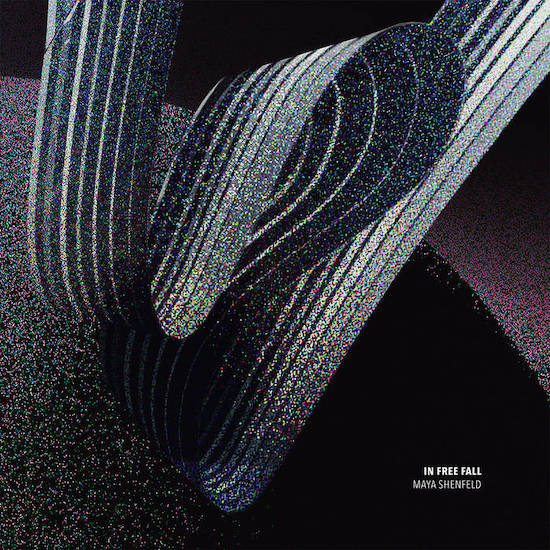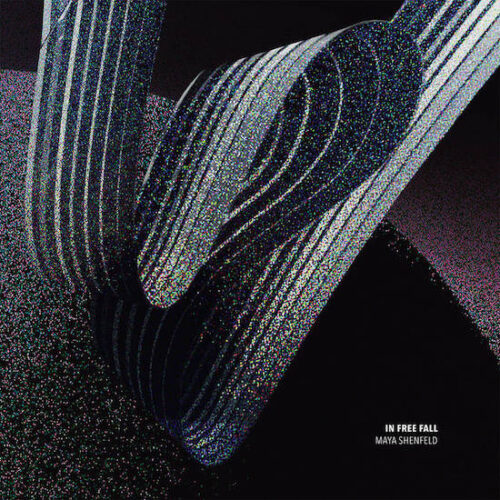On In Free Fall, composer Maya Shenfeld unites punk-inspired feedback with glowing electronics and classical forms. It’s her debut solo album, but it’s built on years of exploration across musical genres. While she’s a classically trained composer living in Berlin, her musical interests have strayed from that path and ventured into the more experimental and noisier. In Free Fall, whose name comes from a Hito Steyerl essay that describes the feeling of a loss of stability, sees her searching for the middle ground between those musical practices, looking to dissolve the boundaries between them. What unites all these different ideas is Shenfeld’s tireless interest in musical texture. The music she writes here is polished but amorphous, made of undulating masses of sound that swirl around each other.
Shenfeld’s interest in blending genres is a steady driving force throughout the album. On some tracks, lush electronics fold into structured acoustic melodies; on others, feedback and grainy noise combine with pillowy electronics to make a fuzzy soup of sound. Many of the tracks take on drone and ambient styles, exploring the transportive power of deep listening. While each piece sounds as if it’s shrouded in a hazy cloud, there’s still a careful attention to detail present throughout, one that highlights the contours of the sounds we hear while also letting them meld together.
In Free Fall’s most successful moments are those that lean into Shenfeld’s metaphorical interest in change and the constant turmoil of going through it. On ‘Body, Electric’, simple melodies are met with forward-driving urgency, repeating in syncopation and swirling around an ever-present drone, while ‘Anaphora’ is built on tension and release, gentle unisons that breathe in and out, lingering on dissonance as much as consonance. In these moments – one fast-paced, one patient – Shenfeld sits with the feeling of uneasiness and then lets it wash away with a pool of sound.
The album’s less compelling moments come when Shenfeld strays from creating peaks and valleys in favour of a sound that’s more even keeled. On ‘Sadder Than Water’, for example, she writes a Baroque-tinged forlorn melody that seems stuck in place, while ‘Silver’ provides gossamer sheen with no layers deeper than the surface. In these moments, there are elements of what makes the other tracks so engrossing, but they’re under-baked, less textured and less intricately detailed.
Those few lacklustre moments don’t take too much away from the sweeping, transportive feeling of In Free Fall, though. Much like its namesake, In Free Fall often feels like floating, but it never really makes the crash-landing you’d expect from gravity’s pull. Rather, it stays in the atmosphere, lingering on the feeling of uncertainty of a jump, right before your feet touch the ground.



